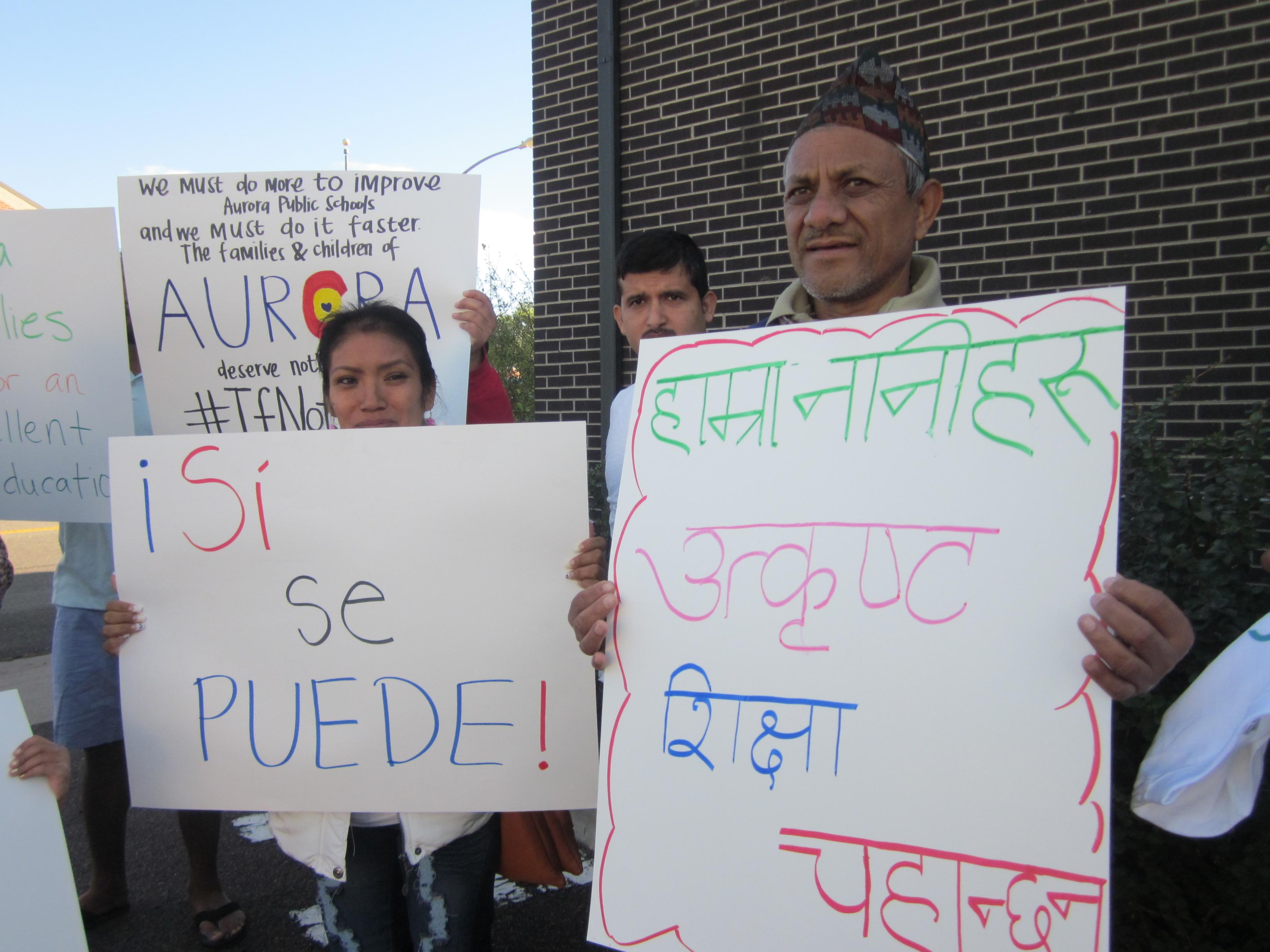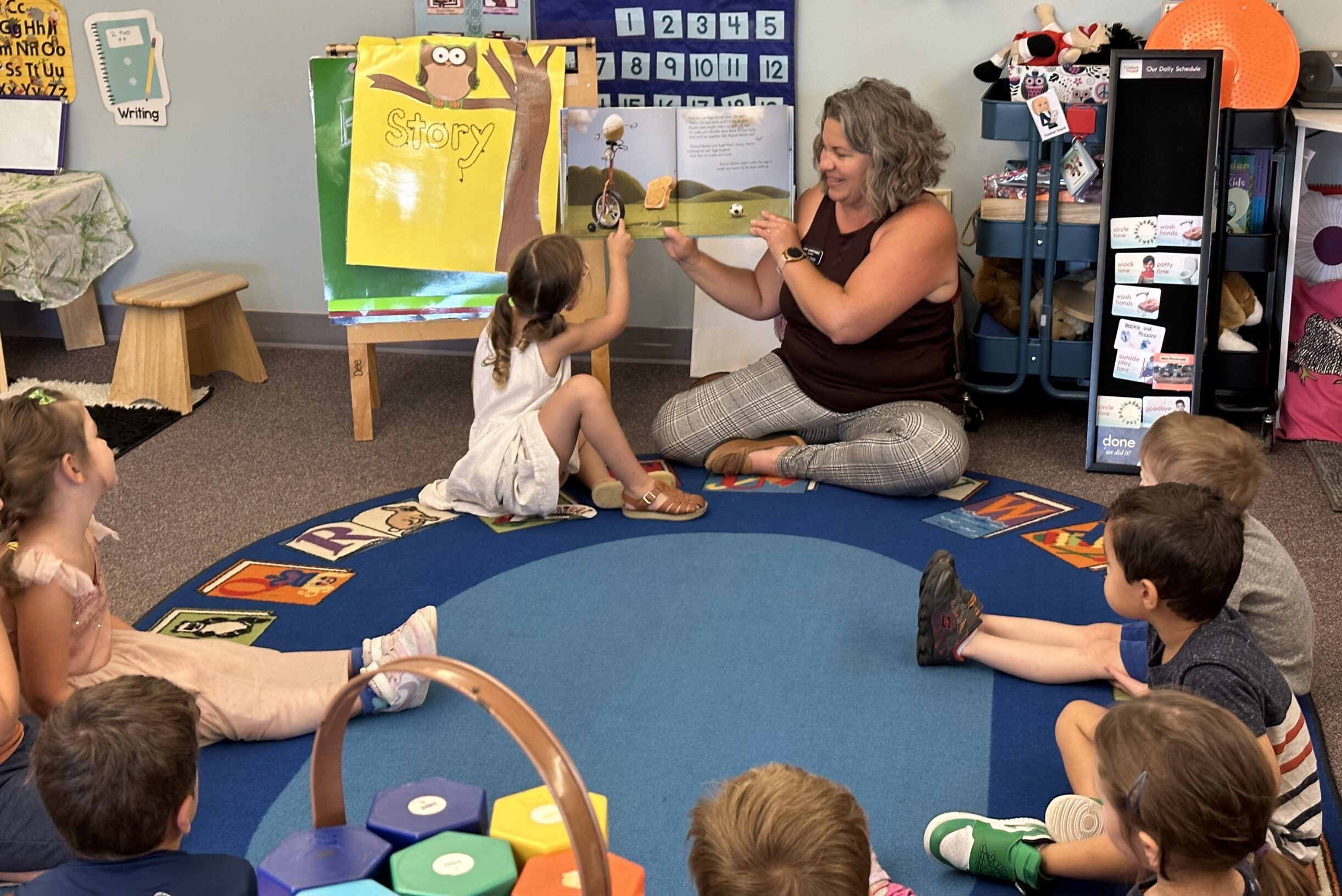
The 40,000 students in Aurora Public Schools score among the worst in Colorado on state tests. About half don’t graduate from high school, and fewer than one in 10 make it all the way through college.
Compounding the challenges: Seventy percent are low-income, more than a third are English language learners and there are more than 1,200 refugees from over 130 countries. APS is also on the state monitoring system and could face a loss of state accreditation and state intervention in 2017-18 if there isn’t rapid improvement.
Today, a coalition of concerned parents, students, and community members held a press conference to address that, calling for significant changes in the district. Here's what we learned:
What are the figures that have everyone worried?
These aren’t new statistics, but compiled together in one report. They are sobering. For every 10 children that begin kindergarten in Aurora, barely one is likely to graduate from college. Just five of the 10 will finish high school. Only two will enroll in a four-year college and one of these will be sufficiently prepared for college-level work in reading, math and writing.
At today’s press conference, several parents said the statistics are a painful wake-up call.
"I myself did not feel ready for the work force after graduating from high school and going to some college," said parent Sipinga Fifita-Nau. "Now knowing that my child only has a 1 in 10 chance of being college-ready scares me."
What else does the report say?
It cites statistics from 2007 to 2013 showing that less than half of students felt safe at school and that teachers and school administrators didn’t trust district leaders.
How is the district responding to this report?
Superintendent Rico Munn, whose been on the job for just two years, doesn’t dispute the data. In fact, the district released its own updated strategic plan this week that said the "longstanding failure must come to an end."
"We’ve got a long way to go," said Superintendent Munn. "We don’t hide from that fact we try to take a very aggressive stance around building our capacity around what is some very difficult reform work."
So the district believes it's already working to improve schools?
Yes, the district report lays out some of the work underway – for example, creating special leadership teams to turn around schools, reallocating money to better support students. They’ve created a system that allocates money to schools based on their risk factors. Schools apply for funds for certain interventions.
Munn says in the past two years, the district has focused intensively on what’s called “culturally competent” teaching. These are special techniques and training for teachers to understand the backgrounds of diverse students, as a way to draw them more into learning.
And the district says more recent school climate and discipline data has dramatically improved in the last year to 18 months.
"We'll have to see with our next climate survey at the end of the year whether that correlates with students and staff feeling safer," he says. "I expect that it will, but we'll have to wait."

The coalition report spends some time comparing Aurora to Denver. Are their schools demographically similar?
Yes, and it shows Denver’s students outperforming Aurora’s. Looking at math scores from 2010-14 for example, Denver’s went up 17 percentage points while Aurora’s went down 7 percentage points.
But Denver has had an intensive reform plan underway for many years already, with millions of dollars in foundation money supporting that effort.
What are some of the coalition’s recommendations?
They want bold goals for student achievement, with milestones and timelines spelled out. They’d like APS to have an easy to understand way for parents to understand how good a school is.
"I have spent hours searching for where to send my daughter and I have not been able to make [a] concrete decision," said parent Shova Dahal. "It is not clear how schools are evaluated or where to find results of evaluation."
The report’s authors would like the district to create new schools to replicate some of the nation’s best schools that serve similar populations – including charter schools. Denver has rapidly expanded charter schools – which are public schools that are independently run, often by non-profit or for-profit networks.
What’s Aurora’s response to that?
Munn said he thinks the report has a tone that the district should adopt Denver’s strategic plan.
"What works for Denver, works great for Denver and it may or not make any sense for a whole host of reasons that are specific to our district," he said.
Munn says he thinks a lot is happening that the report’s authors aren’t aware of. He says Aurora has a number of successful programs, teachers, and principals. The district, he says, is making time and space to share their best practices throughout the district. He says the district has already drawn on lots of national expertise to help craft a reform plan.
"So we are doing a lot of work around identifying, naming and replicating really good practices. We just may not be doing it in a way that Denver does," Munn said.
What else are the parents calling for?
They’re calling for before- and after-school programs, support for English language learners and special education -- and --- full-day pre-school and kindergarten. That takes money. The coalition is recommending a bond and mill levy to raise money for schools for the 2016 ballot.
What does the district say to that?
A recent poll found that 65 percent of likely voters would support a $250 million school bond. That could address severe overcrowding by renovating buildings or constructing new ones. But the board hasn’t talked with any degree of enthusiasm about a mill levy, or property tax increase – which would pay for all the things the parents are asking for, like before- and after-school programs, more support for English language learners and special education students.
One school board member attended the press conference, Dan Jorgensen. What are his impressions?
He sees the work Aurora is already doing and says it has collaborated with community groups like the chamber of commerce. But he says parents are the missing link:
"I’m not completely confident that any unilateral approach by a district, an urban district, has capacity to make the change we want to see," said Jorgensen. "We really need an authentic engagement process with parents at the table."









